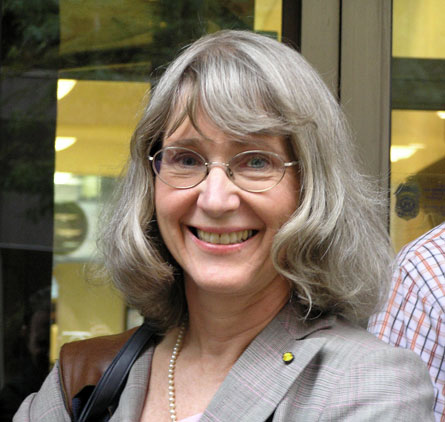So you urge scientists not to say that they “believe” in evolution?!

Right. What your audience hears is more important than what you say.… What [people] hear is that evolution is a belief, it’s an opinion, it’s not well-substantiated science. And that is something that scientists need to avoid communicating.
You believe in God. You believe your sports team is going to win. But you don’t believe in cell division. You don’t believe in thermodynamics. Instead, you might say you “accept evolution.”
How does the language used to discuss new discoveries add to the problem?
To put it mildly, it doesn’t help when evolutionary biologists say things like, “This completely revolutionizes our view of X.” Because hardly anything we come up with is going to completely revolutionize our view of the core ideas of science…. An insight into the early ape-men of East and South Africa is not going to completely change our understanding of Neandertals, for example. So the statement is just wrong. Worse, it’s miseducating the public as to the soundness of our understanding of evolution.
You can say that this fossil or this new bit of data “sheds new light on this part of evolution.”
So people get confused when scientists discover things and change ideas?
Yes, all the time. This is one of the real confusions about evolution. Creationists have done a splendid job of convincing the public that evolution is weak science because scientists are always changing their minds about things.
So how do you explain what science is?
An idea that I stole from [physicist] James Trefil visualizes the content of science as three concentric circles: the core ideas in the center, the frontier ideas in the next ring out and the fringe ideas in the outermost ring….
[We need to] help the public understand that the nature of scientific explanations is to change with new information or new theory — this is a strength of science — but that science is still reliable. And the core ideas of science do not change much, if at all.
The core idea of evolution is common ancestry, and we’re not likely to change our minds about that. But we argue a lot about … how the tree of life is branched and what mechanisms bring evolutionary change about. That’s the frontier area of science.
And then of course you have areas that claim to be science, like “creation science” and “intelligent design,” that are off in the fringe. Scientists don’t spend much time here because the ideas haven’t proven useful in understanding the natural world.
You’ve been on talk radio a lot. What’s your sense of what the public understands about evolutionary biology?
The public has a very poor understanding of evolution. People don’t recognize evolution as referring to the common ancestry of living things. Even those who accept evolution often don’t understand it well. They think it’s a great chain … of gradual increases in complexity of forms through time, which is certainly an impoverished view of evolutionary biology. That view is the source, in my opinion, of: “If man evolved from monkeys, then why are there still monkeys?” … That’s probably the second most common question I get on talk radio.
It’s like saying, “If you evolved from your cousins, why are your cousins still here?” And of course the answer is, well, in fact, I didn’t evolve from my cousins. My cousins and I shared common ancestors, in our grandparents.
What’s the current state of the effort to keep schools teaching evolution?
Sometimes it feels like the Red Queen around here, where we’re running as hard as we can to stay in the same place. The thing is, creationism evolves. And for every victory we have, there’s pressure on the creationists to change their approach. We constantly have to shift our response. Ultimately the solution to this problem is not going to come from pouring more science on it.
What should scientists and people who care about science do?
I’m calling on scientists to be citizens. American education is decentralized. Which means it’s politicized. To make a change … you have to be a citizen who pays attention to local elections and votes [for] the right people. You can’t just sit back and expect that the magnificence of science will reveal itself and everybody will … accept the science.